White Knight Read online
White Knight
CD Reiss
Contents
Why sign up for my newsletter?
White Knight
King of Code
Prince Charming
Also by CD Reiss
King of Code - Copyright © 2017 - Flip City Media Inc.
Prince Charming - Copyright © 2018 - Flip City Media Inc.
White Knight - Copyright © 2018 - Flip City Media Inc.
* * *
No part of this book may be reproduced in any form or by any electronic or mechanical means, including information storage and retrieval systems, without written permission from the author, except for the use of brief quotations in a book review.
* * *
Barrington isn’t a real place and these folks aren’t IRL people. If they seem real, I’ve done my job, but it’s still a coincidence.
Why sign up for my newsletter?
Good question.
Sacred Sins—the conclusion to Margie’s story—will be released chapter by chapter to subscribers…for free.
You’ll be the first to know about deals and steals.
Free books from my fellow romance authors.
SIGN UP HERE
White Knight
Part I
Chapter 1
CHRIS - PRESENT
When I came to New York thirteen years earlier, I’d had ambition and seven hundred and forty-nine dollars to my name. My mother had tried to give me the last of what she had—a hundred forty dollars and some collector’s coins—but I wouldn’t take it. So by New York standards, I had nothing, which was easy to turn into three simple words years later from the back seat of a Porsche Cayenne.
I never glorified the first year. It sucked. They locked dumpsters at night. That was my biggest hardship. Locked dumpsters. Second only to not having money to take care of Lance.
Grappling for survival wears on a guy. It becomes the brain’s primary function. I don’t know how long it takes the average person before survival starts overriding more entertaining affairs, like the love of your life or happiness. In movies, soldiers are always in the trenches, looking at pictures of their girlfriends. I’d kept a picture of Catherine in my pocket. It turned into a ball the size of an aspirin when I woke up in a puddle.
Her picture was gone, but my one singular goal did not change.
Money.
I cut flowers in the backs of grocery stores. Worked construction. Learned to speak Spanish so I could get leads on new jobs. Finally I could afford a bike so I could courier documents and building plans.
Then Brian Cober’s dog bit Lance’s tail. The Brian Cober of Cober Trading Associates. Meanwhile, I couldn’t afford a vet. I had no power. No leverage. Nothing. I was in that dog run every morning to develop a relationship with him, not to get into a conflict. Everyone on the Street knew Cober was a cold-eyed shark who hated to lose. What they didn’t know, and I came to learn, was that he had guilt where his conscience should have been.
A conscience is a guide for living. Guilt can be bought off for a few bucks. Cober paid the vet bills and had me come in to try for a job as a runner on the floor of the Exchange. The interview was his payment. I was eager and humble. I got the job because that room and I were a match made in heaven. It reeked of what I wanted most.
Yes. Money.
I’d needed it to go back to Catherine. A lot of it. More than I could acquire without selling her memory. Earl Barrington money.
That had been thirteen years ago. Though the memory of her had faded into colorless snapshots taken by an innocent boy who no longer existed, the hunger for money hadn’t.
Years after I stopped writing her letters, she became the girl I dreamed about sometimes. Or remembered when I caught the scent of roses from a flower cart. I wondered about her from my box at the US Open, when the pop-popping of tennis balls brought Doverton back to me.
I checked her address when I bought my co-op on Central Park South, and again when I bought the place in the Le Marais.
She still lived in the Barrington mansion, and she still had the same name.
I checked once before I married Lucia, my future wife’s lipstick still smeared on my cock under my tux.
Why didn’t I call her? Why just send one last envelope with a check inside a card? Why not pick up the phone?
I told myself she didn’t want me, but the fact was, I was greedy. I was shallow. I was a shell of a man. I was a robot working eighty hours a week because… foreign markets, and money, money, money.
Which was about to change.
Ten years after his dog bit mine in the park, Brian knew it and I knew it.
The quants had gotten it wrong. The algo had found a trend and labeled it an outlier. I’d been outmaneuvered, and I was about to be the manager of an empty shell of a hedge fund.
A hedge fund’s only capital was its reputation, and ours had taken a beating. It would take years to claw back to the top. I didn’t know if I had it in me anymore.
Nella, my hipster dog walker from Brooklyn, called as I was assessing my nonexistent options. “Mr. Carmichael?”
“What?” I was annoyed. I’d hired her so I didn’t have to be bothered while I was working, and there she was…
“Lance doesn’t look good. He won’t get up.”
“What do you mean he won’t get up?”
“He’s awake, but he can’t move. I think he needs to go to the vet.”
By the time I got back to my co-op, it was too late.
* * *
In Barrington, the factory town where I grew up, when your dog died on the couch, you got your friends up to Wild Horse Hill and you all buried the body. But what did you do in New York City?
You sat on the arm of the sofa. You watched his body’s stillness pour over the upholstery like a stain, covering the cushions, the furniture, the floor, and you, bruising the space with death and rigidity. It soaked everything. Color. Air. Muscle. Spirit. Emotion. The grip of the present seized time and perception, as the tunnels of future and past twisted closed and stranded me inside a hard candy shell.
And then I snapped out of it.
Past and future opened and I saw my life with new clarity. I put my hand on Lance’s fur and knew he wasn’t there.
“Good travels for a good boy.”
I was alone.
I covered him with a cashmere throw and called the vet, who arranged for someone to come for him.
Grief wasn’t a stranger. I’d lost my mother a few years earlier. My sadness then had been mitigated by the fact that in her last years, I’d been able to give her the life she’d always deserved. But Lance? Why did that sting more? Why did I feel as though he’d taken my identity with him?
My phone buzzed. It was one of the quants. I didn’t want to talk about failed arbitrage timing.
Then Brian buzzed. He’d want to talk about survival strategies.
I’d bought this co-op because there was a dog run around the corner.
A text from Nella. Barron’s wanted an interview. They’d photograph me in soft focus and pretend to have sympathy for my bad bets.
Ignoring all of it, I called Lucia.
“I heard, darling,” she said with an Italian accent I used to enjoy. “I’m so sorry.”
God, six words in and I could tell what a mistake this call was. She was talking about the fund crashing, and she had my money on her mind.
“Don’t worry about your payments,” I said. “They’re in a separate fund.”
“I’m not worried. You’re a good man.”
By “good man,” she meant I took care of business. She meant I was responsible. But it was too close to “good boy” and Lance’s body was still on my couch, an inflexible mass under a cashmere blanket.
I w
ent into my home office. It was far away from the living room and it was all hard lines and impersonal touches.
“Christopher? Are you there?”
In the last five years, she was the only person I’d been close to, but she didn’t need to know this. No one needed to know. As soon as people knew, it became real. But there it was. In the tension between my foolish need to tell someone and a more foolish need to pretend my best friend was still in the house, I said it.
“Lance died.”
“Ah, I’m sorry, Christopher.”
“Yeah. Bad week.” An old checkbook sat on the spotless glass top of my desk. I flipped the pages of carbons absently.
“Will you have a service?” Lucia asked. “You can have something at the armory. Everyone will come.”
She’d come because it would be a social event, and I’d already heard she was interviewing rich men for my old position. In normal circles, this was called “dating.” I’d learned her priorities too late, and as much as they were my priorities, they disgusted me.
Money.
Maybe the fact that we shared a mutual love of money for its own sake was why I’d been suddenly repelled by her.
“No service. Not here. I just…” I just wanted to get her off the phone. “You lived with him for years. I thought you might want to know.”
“Well, thank you for telling me. Will you be at the gala tonight?”
“No. Someone just came in. I have to go.”
We hung up. No one had come in, of course. I lived alone.
I started a text message…
* * *
Brian—
* * *
…then stopped.
I had nothing, which meant nothing was holding me here. New York was fine, but it wasn’t home. Both Lance and I were from a little town one hundred twenty miles outside of nowhere.
Lance… my last connection to Barrington was gone. Had a lifeline been cut? Or an umbilical cord I didn’t need?
I’d been one kind of boy and another kind of man. I had been poor then and was disgraced now. The connections had atrophied a long time ago.
But that wasn’t true. Lance had tethered me to the boy I’d been and to the woman I’d loved. With him gone, was I still linked? Or was I stranded with no family, no attachments, no one to hurt if things went south? Loneliness hung off my ribs like a lantern. This co-op. My properties. The portfolio. Built before I’d met my ex-wife, to offer security to a woman who didn’t want me, and crashing with nothing to hold it up.
I needed time to sort it out but gave myself none.
* * *
Brian—I’ll sell if you want it.
* * *
I tapped out an email quickly but didn’t send it. Then I spent ten minutes looking for pen and paper.
* * *
Dear Catherine,
I will try to keep this letter short in the hope that you even remember me.
Chapter 2
catherine - present
The black garbage bag snagged on a piece of metal in the floor and ripped open, dumping a pile of unidentifiable debris all over the concrete.
I wanted to cry, but I didn’t want half the town to see it.
“Let me help you.” Reggie, his sandy-copper hair darkened to brown with sweat, snapped up a snow shovel that leaned against the wall. He trotted across the abandoned factory floor like a kid asking to clear my walk two months early.
“Thank you,” I said, going to the long steel table in the center of the room where the roll of bags was kept. “I think we’re making a dent.”
The snow shovel scraped along the floor with the shriek of metal on stone, but against the backdrop of dozens of people cleaning out the space, it was barely a whisper.
“Getting that graffiti off made all the difference.”
Of course he’d say that. He’d used the walls of the shuttered factory as a canvas through his early twenties, when he was as angry as the rest of the town over the closure.
The anger was still there, but a measure of the despair was being replaced with hope. The people of Barrington were working together to clean the bottling factory that had been the town’s lifeblood until it closed eleven years before. The bank had repossessed the property soon after my father died and my mother defaulted on the mortgage.
Last week, a real estate agent one town over mentioned to a bartender that she was showing the factory to a Silicon Valley tycoon. The news took thirty-six hours to get to my ears. It wasn’t long before the town of Barrington gathered the will to make a plan.
We needed to make the best impression. We were proud people, and that factory, my father’s old factory, had been the source of that pride. I still had most of the interior keys, and the gates had been breached hundreds of times in eleven years. Only this time, we wouldn’t go in to vandalize it, but to clean it.
I wouldn’t see a dime from the factory’s sale, but the new jobs, new people, new money would do something greater than line my pockets. It would fulfill my life’s work of getting Barrington back on its feet.
Reggie scooped up a pile of junk left by teenagers and homeless adults and let it slide into the bag I held open. We filled it, tied the top, and dragged it to the open window. Florencio was by the dumpster underneath, picking up the bits of garbage around it.
“Look out below!” Reggie cried.
Florencio stepped away and we threw the bag out the window and into the dumpster with a muted crash.
It occurred to me that this was all over.
This run of despair was over. The never-ending troubles, the broken system, the exodus from a place I love—over. My trust fund had been drained, my furniture sold, my future pawned so I could keep Barrington and its people above water.
I was almost done.
That night, I cried myself to sleep as I often did. For the first time, it wasn’t out of tension or habit, but fear.
Chapter 3
CATHERINE - SIXTEENTH SUMMER
At the Doverton Country Club, a boy, the boy, the one who was mine the minute I saw him, worked on the grounds. He had sun-coppered hair and strong arms. In the summer, his skin was a burnished russet that made his blue eyes otherworldly. By the second week of my sixteenth summer, all the girls at the club giggled over him. They were mostly from Doverton, but he and I were from neighboring Barrington. The town bore my name because my father and his father before him had owned the bottling plant, and that was what you did back then. If you created the town and made it thrive, you named it after yourself. Fifty years later, it was still named Barrington, we still lived there, and the folks in Doverton called it Trashington.
The town’s reputation bothered my father a little… but my mother? When she heard some of the Doverton Ladies of the Court hadn’t invited her to a cocktail brunch because she lived over there, it drove her over the edge.
“Don’t you give them a reason to call you trash.” She sat across from us in the limo.
Harper and I got dressed in our whites once a week for tennis lessons and once again in jeans for equestrian. Dad worked at the plant, and Mom didn’t drive.
“That’s the first thing.” She pointed at Harper. “When you hit them with your racquet, that’s exactly what you’re doing. Giving them a reason to look down on you because you’re a Barrington.”
“I didn’t—” Harper’s defense was irrelevant.
“If they only knew we could buy and sell all of them.”
“She didn’t call me trash. She said the topspin reduced the travel distance when in fact the spin vector—”
“Harper!” Mom cut her off again. “No one wants to hear a lady talk nonsense.”
I wasn’t thinking of my sister or how she must have felt when Mom said stuff like that, which she always did. I was thinking of myself and how I was so much more of a lady than my little sister.
“Look!” Harper pointed out the window. “There’s that guy again!”
I slid over to her, and there he was. The boy with
the rippling tan skin who worked the grounds, biking up the hill in his shorts and backpack. No helmet, bronze hair flapping away from his sweaty face.
His name was Chris. He had a ready smile and full lips that I knew tasted of salt and cola.
Mom tsked. “That boy. He’s going to get himself killed. I don’t know how his parents allow him to take a bicycle twenty-two miles to the club.”
“We should give him a ride!” Harper exclaimed, eyes wide with a brilliant idea.
“Heavens, no!”
“He only has a mother,” I said. I saw him in town sometimes. Marsha had told me all about him. He was our age. Trailer trash. Invisible.
As we passed him, he waved.
Harper opened the window and cupped her hands around her mouth. “Use a lower gear uphill! It increases gain ratio!”
“Thank you!” he said with a smile and flicked his gear changer.
I got away from the window as Mom took Harper by the shoulder and pulled her to her side. The driver closed and locked the window. We rode the rest of the way in silence.
Chapter 4
CATHERINE - PRESENT
Upstairs, the bed creaked.
My little sister had set it up so the stairs to her attic room didn’t make a sound. She didn’t want to disturb me when she came down to the kitchen late at night. But though the stairs were silent, the bed made noise when she and Taylor were… busy. The day before was the first time I heard them at it.

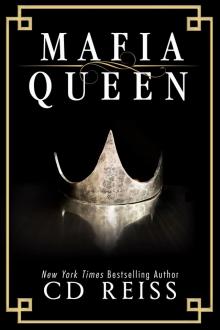 Mafia Queen: The DiLustro Arrangement #3
Mafia Queen: The DiLustro Arrangement #3 Mafia Bride: The DiLustro Arrangement #1
Mafia Bride: The DiLustro Arrangement #1 Mafia King
Mafia King Mafia Bride
Mafia Bride Sacred Sins
Sacred Sins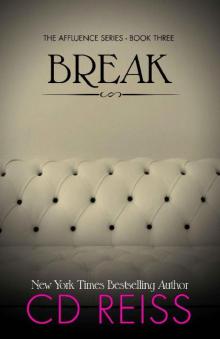 Break
Break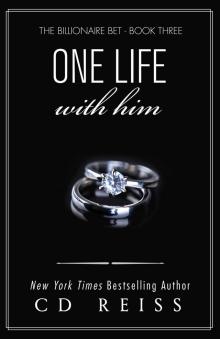 One Life With Him
One Life With Him Pretty Scars
Pretty Scars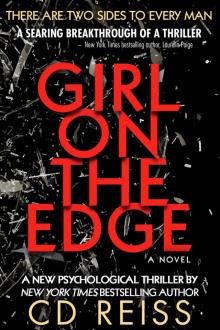 Girl On the Edge
Girl On the Edge Secret Sins: (A Standalone)
Secret Sins: (A Standalone) Cutting Edge_The Edge_Prequel
Cutting Edge_The Edge_Prequel Prince Roman
Prince Roman Hardball: (A Kinky Sexy Dirty Standalone)
Hardball: (A Kinky Sexy Dirty Standalone)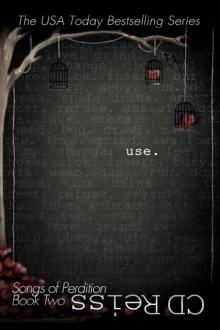 Use
Use Marriage Games (The Games Duet #1)
Marriage Games (The Games Duet #1)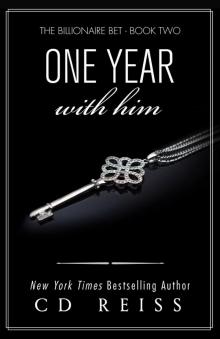 One Year With Him
One Year With Him Sing
Sing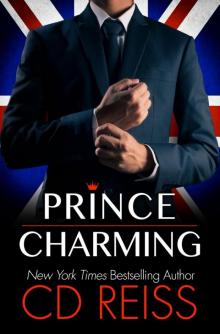 Prince Charming
Prince Charming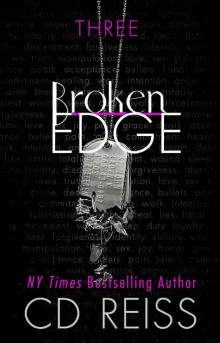 Broken Edge: (The Edge #3)
Broken Edge: (The Edge #3)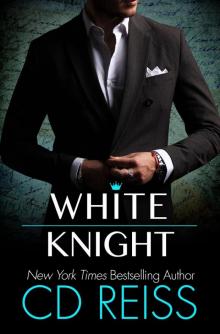 White Knight
White Knight Submit (Songs of Submission)
Submit (Songs of Submission) Jessica and Sharon
Jessica and Sharon Monica
Monica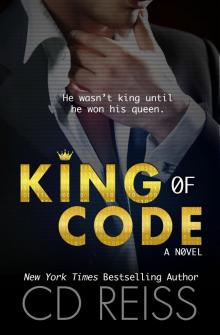 King of Code
King of Code Rule
Rule Rough Edge: The Edge - Book One
Rough Edge: The Edge - Book One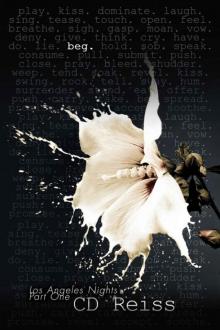 Beg (Los Angeles Nights)
Beg (Los Angeles Nights) Rough Edge
Rough Edge Separation Games (The Games Duet Book 2)
Separation Games (The Games Duet Book 2) Forbidden: A Standalone
Forbidden: A Standalone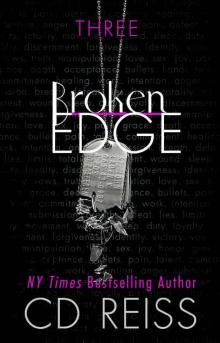 Broken Edge
Broken Edge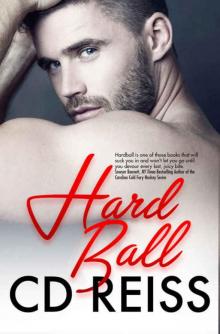 Hardball
Hardball Coda
Coda Complete Submission: (The Submission Series, Books 1-8)
Complete Submission: (The Submission Series, Books 1-8) Shuttergirl
Shuttergirl